Physics
Sign up for our newsletter
We summarize the week's scientific breakthroughs every Thursday.
-
 Life
LifeEarwigs take origami to extremes to fold their wings
Stretchy joints let earwig wings flip quickly between folded and unfurled.
-
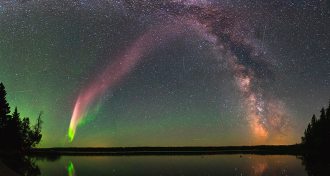 Physics
PhysicsSTEVE the aurora makes its debut in mauve
A newly discovered type of aurora is a visible version of usually invisible charged particles drifting in the upper atmosphere.
-
 Plants
PlantsLiverwort reproductive organ inspires pipette design
A new pipette is inspired by a plant’s female reproductive structure.
-
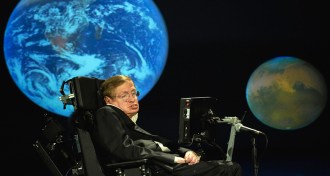 Cosmology
CosmologyRenowned physicist Stephen Hawking dies at 76
Beyond his research contributions, Stephen Hawking popularized black holes and the deep questions of the cosmos.
-
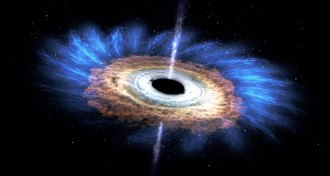 Quantum Physics
Quantum PhysicsSuperconductors may shed light on the black hole information paradox
Materials that conduct electricity without resistance might mimic black hole physics.
-
 Neuroscience
NeuroscienceReaders muse about memory, magnetic monopoles and more
Readers had questions about the physical trace of memory, magnetic monopoles, blowflies and more.
-
 Physics
PhysicsGive double-layer graphene a twist and it superconducts
When graphene layers are twisted to a “magic angle,” the material superconducts.
-
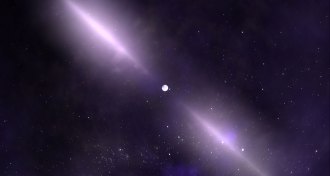 Astronomy
Astronomy50 years ago, pulsars burst onto the scene
Thousands of pulsars have been discovered since the announcement of their detection 50 years ago.
-
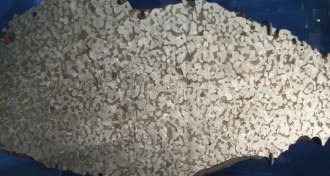 Physics
PhysicsSome meteorites contain superconducting bits
Scientists find materials that conduct electricity without resistance in two meteorites.
-
 Quantum Physics
Quantum PhysicsGoogle moves toward quantum supremacy with 72-qubit computer
Google’s 72-qubit quantum chip may eventually perform a task beyond the ability of traditional computers.
-
 Physics
PhysicsKnotted structures called skyrmions seem to mimic ball lightning
Skyrmions in a quantum state of matter have something surprising in common with ball lightning — linked magnetic fields.
-
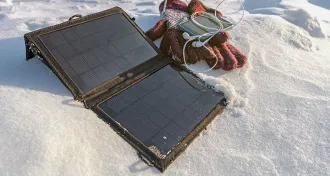 Chemistry
ChemistryExtreme cold is no match for a new battery
A rechargeable battery that works at –70° C could be used in some of the coldest places on Earth or other planets.